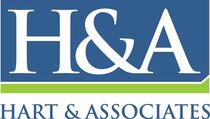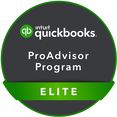|
This is a short but information post from Bill.com highlighting three ways you can improve the effectiveness of your business operations:
https://www.bill.com/blog/perfect-match-3-pairings-optimize-your-business/ If you would like to learn more about utilizing Bill.com with QuickBooks, please contact us at [email protected] or by phone at 760.415.2587 to schedule an appointment.
Keeping a to-do list is a great way to be productive, avoid having things fall through the crack, and unclutter your brain.
How you maintain your to-do list varies: some people use pen and paper because they love the feeling of crossing tasks off, others use Excel or Google documents. Still others might try Evernote. If all of those still have you feeling unorganized, then relax. There’s a whole new genre of apps to automate your to-do list. Here is a list of things to consider when selecting a tool:
Once you’ve thought about your requirements, now you can look for an app that meets it. Here are a few to get you started: If those don’t work out, Google “to-do list apps” and you’ll have a bevy of selections to choose from. These to-do lists will work for not only business projects but also major life projects like weddings, vacations, and more. Try these new to-do list apps and please let us know what you think.
Accordingly, the Federal Reserve’s actions probably will exert at least a moderate influence over financial choices you make at home and in your business in 2016 and beyond.
For example, as a consumer, you stand to gain from rising interest rates because you’ll likely earn a better return on your deposits. Over the last ten years, placing your money in a certificate of deposit or passbook savings account has been hardly more profitable than stuffing it under a mattress. On the other hand, the cost of borrowing money will likely increase. As a result, mortgages, car loans, and credit cards will demand higher interest rates. That’s not a big deal if you’re already locked into low-interest fixed-rate loans. But if you have a variable rate loan or carry balances on your credit cards, you may find your monthly payments climbing upward. On the investment front, market volatility may increase because rate increases are not completely predictable. Market sectors will likely exhibit varied responses to changes in interest rates. Those sectors that are less dependent on discretionary income may be less affected. After all, you need to buy gas, clothes, and groceries regardless of changes in interest rates. Rising interest rates can also affect your business. If your company’s balance sheet is loaded with variable-rate debt, rising interest rates can affect your bottom line and your plans for growth. As the cost of borrowing increases, taking out loans for new equipment or financing expansion with credit may become less desirable. These changes can lead to many questions about the best course of action on both personal and business fronts. To help you decide the most beneficial response to current and potential future changes in interest rates, please contact your CPA or financial advisor.
This is general information and should not be acted upon without first determining its application to your specific situation. Please contact your CPA or tax advisor for additional details.
myRAs generally follow Roth IRA rules. That means the maximum contribution for 2015 and 2016 is $5,500 ($6,500 when you’re over age 50).
Contributions to your myRA are invested in a U.S. Treasury savings bond. The balance in your account earns interest and is guaranteed to retain its value. The Department of the Treasury recently added new ways to fund myRAs. As before, you can choose to fund your account from your paycheck by completing a direct deposit authorization form and giving it to your employer. In addition, you now also have the option of making direct deposits from a checking or savings account or from your federal income tax refund. To learn more about myRAs and/or to see if one would be a good fit for you, please contact your financial advisor.
This is general information and should not be acted upon without first determining its application to your specific situation. Please contact your CPA or tax advisor for additional details.
In mid-December, Congress renewed a list of tax breaks known as “extenders” that have been expiring on an annual basis. This year many of the rules are retroactive to the beginning of 2015, and you may benefit from them as you prepare your 2015 federal income tax return.
In addition, the Protecting Americans from Tax Hikes Act of 2015, which was signed into law on December 18, 2015, makes some of the rules effective through December 31, 2016. Others are effective through 2019, and some are effective permanently. Provisions in the Act also make changes to existing tax rules that were not part of the extenders. All of these changes will affect your tax planning for 2016 and future years. Here’s an overview of selected provisions.
Because the Act was passed so late in the year, you will need to review your 2015 transactions to take advantage of applicable breaks and claim them on your 2015 federal income tax return. Also, with the rules now extended through 2016 (and in some cases beyond), you can begin to update your current tax plan with some measure of certainty. Please note: This is general information and should not be acted upon without first determining its application to your specific situation. Please contact your CPA or tax advisor for additional details. |
AuthorSuccessfully meeting the challenges inherent to new and smaller businesses provides me with a special type of satisfaction. Archives
February 2022
Categories
All
|




 RSS Feed
RSS Feed







